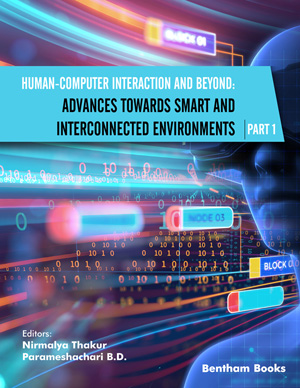Abstract
Background: The enhancement of real-world speech signals is still a challenging task to eliminate noises, namely reverberation, background, street, and babble noises. Recently learned methods like dictionary learning have become increasingly popular and showed promising results in speech enhancement. The K-means Singular Value Decomposition (KSVD) algorithm is best suited for dictionary learning among many sparse representation algorithms. Moreover, the orthogonal matching pursuit (OMP) based algorithm used for signal recovery is given. The orthogonal matching pursuit (OMP) based algorithm for signal recovery gives the best enhancement results. On the other hand, FPGAs and ASICs are widely used to accelerate speech enhancement applications. FPGAs are commonly used in healthcare and consumer applications, where speech enhancement plays a crucial role.
Methods: This paper proposes a modified KSVD algorithm that can easily be implemented onto hardware platforms like FPGAs and ASICS. Instead of using the double-precision arithmetic for the singular value decomposition part of the KSVD algorithm, we proposed to use CORDIC (Coordinate Rotation Digital Computer) based QR decomposition and QR-based singular value decomposition in dictionary learning.
Results: The proposed KSVD algorithm is optimal with the CORDIC algorithm that can reduce by 7-8 times the processing time.
Conclusion: The finding indicates that the proposed work is best suited to FPGA or ASIC platforms.
Keywords: K-singular value decomposition, FPGA, ASIC, CORDIC, dictionary learning, sparse representation.
Graphical Abstract
[http://dx.doi.org/10.14419/ijet.v7i2.17.11563]
[http://dx.doi.org/10.14419/ijet.v7i2.7.10243]
[http://dx.doi.org/10.1109/TSP.2006.881199]
[http://dx.doi.org/10.1109/JSTSP.2011.2157892]
[http://dx.doi.org/10.1016/j.ieri.2014.08.005]
[http://dx.doi.org/10.1109/TVLSI.2014.2358716]
[http://dx.doi.org/10.1109/DASIP.2017.8122131]
[http://dx.doi.org/10.5772/intechopen.85308]
Yazd, Iran. [http://dx.doi.org/10.1109/IranianCEE.2019.8786719]
[http://dx.doi.org/10.1109/NAECON.2016.7856841]
[http://dx.doi.org/10.1049/iet-cds.2015.0349]
[http://dx.doi.org/10.1109/ICSCAN53069.2021.9526417]
[http://dx.doi.org/10.1016/j.matpr.2021.05.662]
[http://dx.doi.org/10.1016/j.specom.2006.12.006] [PMID: 18046463]
[http://dx.doi.org/10.1371/journal.pone.0169663]



















